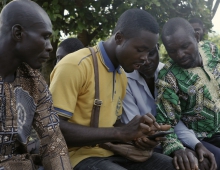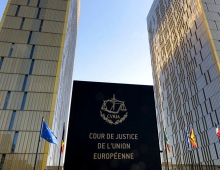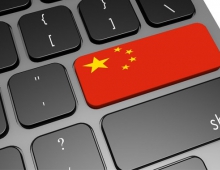
Internet Access Considered Human Right: survey
A survey of Internet users in 24 countries has found that 83% believe affordable access to the Internet should be a basic human right. The results of the new survey, commissioned by the Centre for International Governance Innovation (CIGI) and conducted by global research company Ipsos, were presented today in Ottawa, Canada.
According to responses, two thirds of Internet users are more concerned today about online privacy than they were compared to one year ago (64%). When given a choice of various governance sources for the Internet, the majority (57%) chose multi-stakeholder model "of technology companies, engineers, non-governmental organizations and institutions that represent the interests and will of ordinary citizens, and governments."
The survey of 23,326 users was carried out between October 7 and November 12, 2014 in: Australia, Brazil, Canada, China, Egypt, France, Germany, Great Britain, Hong Kong, India, Indonesia, Italy, Japan, Kenya, Mexico, Nigeria, Pakistan, Poland, South Africa, South Korea, Sweden, Tunisia, Turkey and the United States.
Among the top areas of concern for Internet users, criminal hacking into personal bank accounts (78%) ranks highest followed by stolen personal information, such as private messages and photos, through hacking (77%), and further followed by private companies monitoring the activities of Internet users and then selling that information for commercial purposes without explicit consent (74%).
Other concerns focused on governments and institutions with a full majority of Internet users worried about important institutions in their country being cyber attacked by a foreign government or terrorist organization. Two-thirds of Internet users are concerned about governments censoring the Internet and government agencies from other countries secretly monitoring their online activities.
When it comes to governance, Internet users prefer the broadest form of representation through a multi-stakeholder model that represents the interests and will of ordinary citizens as well as governments. Only 48% of Internet users believe their government does a very good job of making sure the Internet in their country is safe and secure, which underlines the wariness of the role of governments in Internet governance.
Facts on attitudes of Internet users
On access:
- 83% believe affordable access to the Internet should be a basic human right.
- 81% say the Internet is important for their own economic future and livelihood.
On privacy and monitoring:
- 64% are concerned about their online privacy compared to one year ago.
- 36% believe private information on the Internet is very secure.
- 74% are concerned about private companies monitoring online activities and selling that information for commercial purposes without explicit consent.
- 62% are concerned about government agencies from other countries secretly monitoring their online activity
- 61% are concerned about their government agencies secretly monitoring their online activity
On cyber attacks and censorship:
- 72% are concerned about important institutions in their country being cyber-attacked by a foreign government or terrorist organization.
- 78% are concerned about a criminal hacking into their personal bank accounts.
- 77% are concerned about someone hacking into their online accounts and stealing personal information like photos and private messages.
- 64% are concerned about governments censoring the Internet.
On governance:
- 57% would trust a combined body of technology companies, engineers, non-governmental organizations and institutions that represent the interests and will or ordinary citizens and governments to play an important role in running the Internet.
- 47% would trust their own government to play an important role in running the Internet.





















